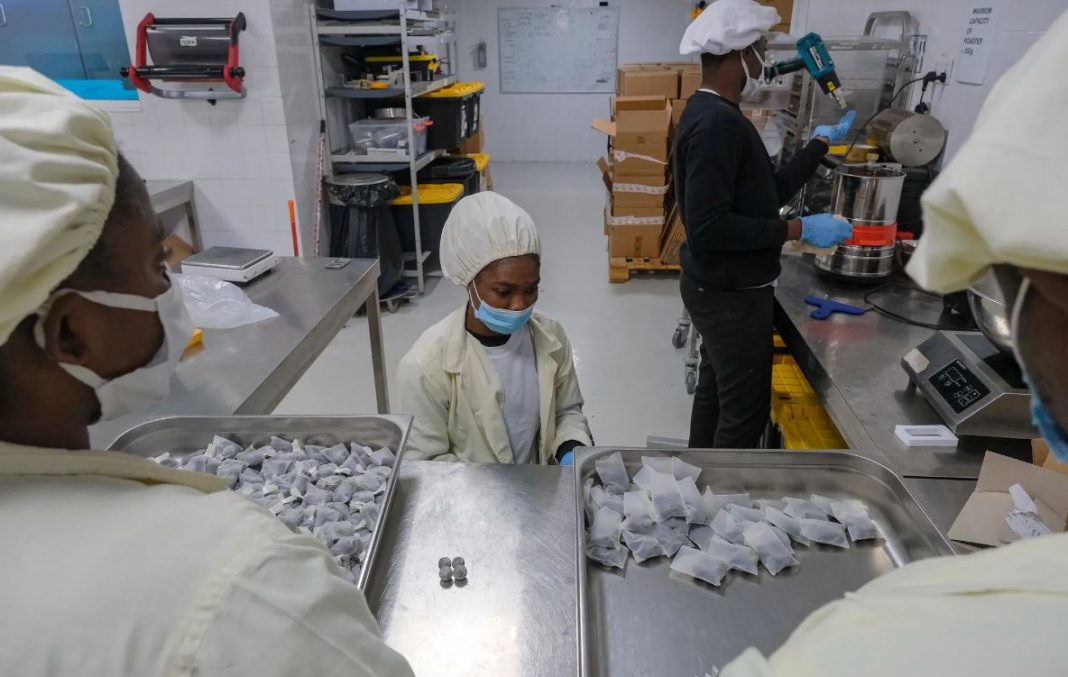Travelling from Accra, Ghana’s capital, to the Fairafric chocolate factory in Amanase on the N6 highway is the easy part of the trip. But after approximately half an hour, the wide, paved road turns into a patchwork of unmarked dirt. Trucks, commuter vans, automobiles, and motorbikes all grind to a halt along rocky, rutted portions surrounded by concrete barriers, puddles, and piles of rock.
One of the obstacles Fairafric faced in constructing a factory in this West African country was the inadequate road network. There was no high-speed fiber-optic connection to the rest of Ghana’s communications infrastructure. The firm was unable to secure financing from any of the area’s banks. And the president of Ghana has to get involved personally for work to start in 2020.
Africa produces 70% of the world’s raw cocoa beans, and the chocolate business there is worth billions. But it barely makes 1% of chocolate, so it can’t compete in the high-margin market segment that’s dominated by companies in the US and Europe.
Fairafric is driven by a desire to increase Ghana’s (the world’s second-largest exporter of cocoa, behind Ivory Coast) portion of chocolate sales’ earnings. The idea is to make the chocolate where the cocoa is grown, providing farmers with secure, well-paying jobs in the process.
Having access to substantial natural resource reserves is a blessing for many developing nations. Cocoa is Ghana’s main export. Diamonds are Botswana’s main export. That resource in Nigeria and Azerbaijan is oil. When the commodities industry absorbs an excessive amount of resources, however, the economy is unable to diversify and growth is stifled over the long run.
Commodity dependence can produce boom-and-bust cycles because commodity prices fluctuate in response to market forces such as supply and demand. If the economy is dependent on a single industry, such as agriculture, and that industry has a slump, the entire economy might collapse.
However, Ghana is a challenging environment in which to establish an industrial capability. Power, water, and sewage systems that are dependable outside of major cities may need to be installed. It is possible that the suppliers, competent labour, and required technology and equipment are not easily accessible. New businesses may not have the funds to cover the high transportation charges if they export at first.
If Fairafric’s creator and CEO, a German social entrepreneur named Hendrik Reimers, hadn’t shaken things up, the company would not have been as successful as it is now.
This colonial-era practise of shipping low-priced inputs to high-priced manufacturers in more developed nations is still going strong. The process of cocoa farming and harvesting is the lowest paid part of the chocolate industry. As a result, farmers only get paid 5-6% of what a chocolate bar costs in major cities like Paris, Chicago, and Tokyo.
The goal is to build a successful business that can then share its profits with low-level investors, manufacturing employees, and farmers in Ghana. Keeping production in Africa benefits other regional companies like the paper mill that makes the chocolate wrappers used by Fairafric. Infrastructural development is aided as well. Fairafric’s deployment of fibre optic connections in this rural area has opened the door for new enterprises to set up shop there.
The method has been put to the test in recent years. The coronavirus epidemic was a blow to the Ghanaian economy. Food, gasoline, and fertiliser costs all shot up after Russia invaded Ukraine. The Federal Reserve and other central banks raised interest rates in response to rising inflation.
Ghana’s central bank increased interest rates as inflation reached a peak of 54%. They’ve reached the 30% mark. Meanwhile, the cedi’s value plummeted against the dollar, cutting households’ and companies’ purchasing power by more than half.
In 2015, Fairafric launched its first crowdfunded fundraising campaign. In 2019, a German chocolate firm run by a family purchased into Fairafric and made it a subsidiary.
The school is located on the outskirts of a cocoa estate in Budu, just a short distance from the factory. It is a simple, open-sided concrete hut furnished with wooden seats and rectangular blackboards. The principal blames the lack of participation in the government’s free school meal programme for the declining enrollment.
There are 95 workers in the factory. They are paid more than the minimum wage and provided with health insurance. In order to safeguard against variations in currency value, salaries are fixed to the dollar. Due to unreliable public transit, the firm provided a vehicle for employees to use for free. Fairafric also provided a free canteen so that workers on all shifts of the factory may eat their meals there.
Mr. Marmon-Halm stated that the firm need an additional $1 million for growth. He pointed out that the chocolate business was a major economic driver.

